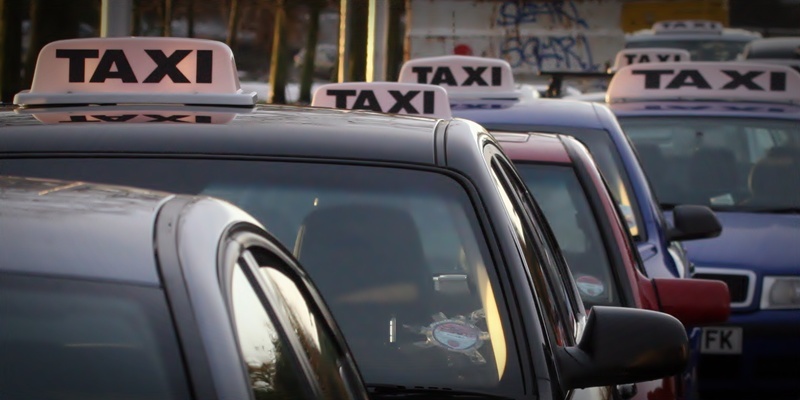Dundee taxi drivers work under the near constant threat of violence from drunken customers.
A new survey of taxi drivers by Edinburgh’s Napier University found 80% of those surveyed in Dundee feel unsafe while working 10% above the national average.
Nearly all of the 15 Dundee drivers who took part in the survey also said they had been verbally or physically abused by a drunken fare.
Moira Weir, a student at Napier University, interviewed 75 taxi drivers from Dundee, Edinburgh, Glasgow, Inverness and Fort William about their experiences.
Some of the most violent behaviour was reported in Glasgow, where one driver had a gun held to his head in a dispute over a £4 fare.
Although taxi drivers reported feeling most threatened by men, anecdotal evidence from the study found drunken women also gave them concern.
One Dundee driver said: “I have learnt how to handle grown men when they’ve had one too many, but 15-year-old girls is a different matter.
“I have no idea what to do with them if they become abusive.
“The sooner I can drop them off to their parents the better.”
Fare dodging was another major problem across the country and almost every cab driver surveyed in Dundee (98%) had experienced people leaving without paying.
Ms Weir said: “Taxi drivers are the white knights of the city and play a vital role in the night-time economy, but the vast majority of those I spoke to said that they felt most vulnerable in the evening or at night.
“I found it shocking to hear how frequently taxi drivers have to deal with threatening behaviour or fare dodging, which directly affects their work and ability to make a living no one should have to put up with that kind of behaviour at work.”
Dundee Taxi Association chairman Graeme Stephen said many drivers have given up their jobs rather than continue working under the threat of violence.KnifepointHe said: “There are a lot of these kind of incidents and drivers being held at knifepoint.
“One driver was held up at knifepoint a few years ago.
“The knife was at his throat and he grabbed the blade which cut his hand and he’s had trouble with his fingers since.
“Some drivers have even given it up because of it.”
Mr Stephen said fitting CCTV cameras in cabs could be effective in curbing violence.
“There are quite a few taxi drivers, like myself, that have gone to the expense of getting CCTV put in that does help,” he said.
“There is a screen so people can see it as soon as they get in the car.”
Mr Stephen said that although weekends are worse for violence or intimidation because of the high number of people who have been out drinking in Dundee city centre, attacks can occur throughout the week.
“It can happen any time but at the weekend it is definitely worse,” he said.
“It’s not just drink, it is drugs as well.”
He said that there is nothing that can prepare drivers for dealing with drunk or violent customers.
Mr Stephen said: “When anything like that happens things just become spur of the moment, your brain just goes into action and you do whatever you think is right at the time.
“Experience helps the longer you’ve been doing it you know how to calm people down and talk people out of an argument.
“People have too much to drink and if they’ve fallen out with their girlfriend or wife they try to take it out on the taxi driver.”
